Tips For Better Sleep
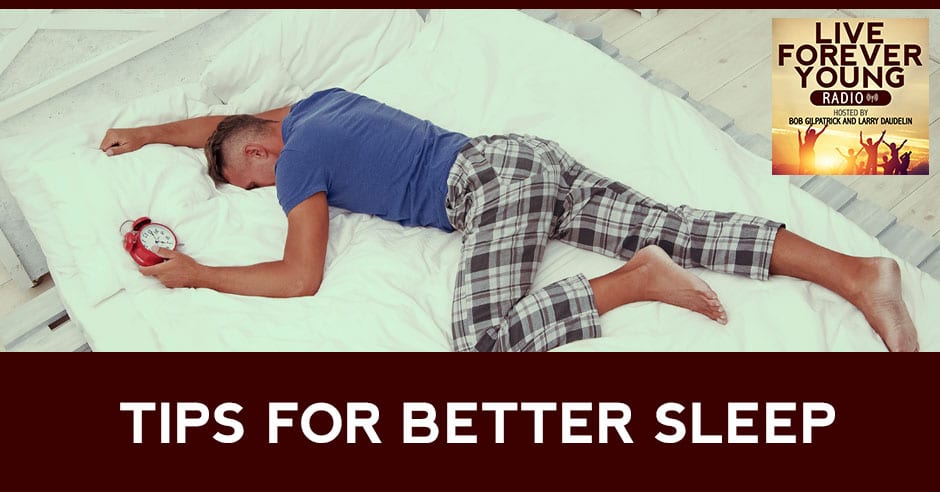
Did you know that sleeping with a screen on can affect your REM sleep? There are many other factors that can affect how we sleep at night. And if we’re lacking sleep, this can lead to less focus, slower reaction times, and much more complicated problems.
Join your hosts, Bob Gilpatrick and Larry Daudelin on some tips on how to better your sleep. Learn what happens to your body when you sleep and how important it is to prioritize it over everything else.
Watch the podcast here:
Tips For Better Sleep
I'm here with Rollie Culp. How are you doing? I'm doing great, Bob. I'm glad to be here. It’s a great day in Tampa Bay. It's always a good day at Tampa Bay.
Even though we are wide awake and excited, we are going to talk about sleep. We are going to try to bring it down a notch and talk about sleep. It seems like the more and more you hear about issues related to sleep, people not being able to sleep because of anxiety, of everything that happened in 2020, bleeding over into 2021.
We now have 50 million to 70 million people when they do surveys, indicating that they are having some type of sleep problem. Many different things can happen to people that are negative if you are not sleeping properly.
One of the things I was reading and telling you about, is the study that's showing a lack of sleep can shrink your brain. Your time to repair, relax and be down on cortisol is during your sleep time. If you are not getting that time for your body to hit that relax point, then the brain is going to get overworked and I could see how it might suck the life out of it. I know that's not technical but think about it, your brain is doing so much work. If you don't sleep and give that brain a rest, something is going to negatively affect it and shrinkage of the brain is on the table when that happens.
Also, it has a detrimental effect on your immune system and your circulation. People with diabetes have a much harder time if they are not sleeping well. It also affects your cognition. People tend to have less focus and concentration. They tend to have more problems with their memory.
If you are not sleeping, you are not going to be able to have that mental clarity that you need when you wake up in the morning. Real quick on diabetes, my dad, who we have talked about, Diabetes, A Preventable Epidemic, has always had a few issues with sleep but it's even worse when his diabetes gets a little bit out of whack and when his sugars get too high or too low. Just the fact of having diabetes will affect your sleep pattern. Therefore, if you have diabetes and aren't sleeping, that's a vicious cycle that you get into because it makes it even worse.
Also, it's a big contributor to irritability, depression and anxiety, especially in the workplace. If people are not getting enough sleep, they are not going to be able to concentrate. You certainly don't want to have this if you have any type of job where there's safety involved and dependent on your alertness.
Your reaction time goes down. If you can't concentrate, you are not going to be as productive. Sleep is the golden rule to making your life productive. Some studies show that people are much more likely to die young if they have trouble sleeping. We know for certain that it affects people's memories because when you go to sleep at night and you get into REM sleep, you change your brainwave patterns.
During your waking state, you have what's called splayed beta. Splayed means you have a lot of betas. Beta is your brainwave of wakefulness and delta is your brainwave of sleep, which is the furthest down. At nighttime, what you are trying to do is quiet down your beta waves, splay your delta waves and their waves in between also. When you are going into a deep sleep, rapid eye movement sleep creates a theta wave state in a particular part of your brain, the dentate gyrus, which processes information that you learned during the day that was short-term memory. Whatever you deemed is necessary for survival, you are going to transport that to your long-term memory.
That's the key to retaining it, this dentate gyrus. Knowing a little bit about the brainwave as we go into what to do about getting good sleep, that's some good information for you. In general, what people want to be aware of is that we tend to sleep in approximately 1.5 hours’ cycle. Technically, you wake up every hour and a half but you may not know it. Your melatonin is rising and falling in the cycle.
Melatonin is your hormone of your sleeping state. Serotonin is the hormone of your waking state. Serotonin, in the nighttime, when the sun starts to go down, converts into melatonin. Melatonin is not a completely separate hormone. It's a derivative of the neurotransmitter serotonin. It’s no wonder why it affects depression.
The sunlight is what's controlling it. This is one of the things that you want to live with your biorhythms. During the daytime, it's lights out. Your body is being signaled by the light that it's time to be awake. Various things are going on in your body that is responding to that light. As the sun goes down, your brain and eyes begin to respond differently to dusk and full dark.
You switch your brain chemistry state. You begin to have more GABA, more melatonin. This is therapeutic rest and recovery, a memory forming state where your body is detoxifying, resting, recovering, rebuilding and you are getting ready for the next day.
The light and the dark trigger these hormonal changes and chemical changes in your brain. It's super important to get out during the day. If you are not outside during the day, you are not going to give that signal to the body that says, "We are up. We’ve got to move. We’ve got to do our thing."
It's daytime. This is in preparation for the nighttime. If your body knows it's daytime because you have made an effort to get out in the light, then it's easier to fall asleep at night. You also need to pay attention to the light at nighttime because a lot of us sit in front of the TV, in front of a computer, with our cell phones on.
I go to sleep with a TV on sometimes. I realized I don't sleep as well when it happens. There are a lot of blue light emitted from these devices and it is the light of daytime. Your body doesn't know that it's nighttime if you have all these lights on. You want to begin to wind down the blue light an hour before bedtime by turning off those devices. If you are going to watch TV, you need some glasses that block out the blue light.
There's a good type of glasses called TrueDark. If you put them on, what you will notice is that whatever was blue on the television turns to a different color when you are looking through these glasses. It's truly blocking out the blue light. It's an alternative to just shutting all the lights off.
You want to make sure that the blue light is minimal. We don't drink stuff like sugary soda and caffeine. About that same time that you are winding down the blue light, don't drink anything sugary or caffeinated before that point. That's a simple one and everybody forgets that.
About light, you want to make sure your room is perfectly dark. You want to have blackout shades that you can pull down that block all the light out from outside, that might be coming through your window. Any lights that you have in your bedroom, if you have an alarm clock with an LED light, VCR or your televisions in the bedroom and that little red light is still shining, you want to cover all those over with some type of black cloth that you can drop over those lights so that your room is perfectly dark. That makes a big difference when your room is totally dark.
I would think if you covered every light, you might have a little problem navigating on your way to the bathroom in the middle of the night. What people can do is you can put a light that's in the hallway, outside your bedroom door. Most people can get out of bed, open their bedroom door and go into the hallway or if your bathroom is in your bedroom, open the door and go in the bathroom.
In there, it's okay to have a light on that's a small nightlight but you don't want it to be blue. Make it a red light so the blue light doesn't hit you and make your body think it's time to get up. I never thought of that. The other things are like this. You can do things to make yourself sleepy before it's time for bed. One of the things that we do for people is we give them a sleep aid, called Good Night Formula.
It was discovered about a few years ago by a neuroscience researcher who specializes in sleep. She was working with her clients that had very serious sleep disorders. She was researching with vitamins. She discovered that for people to fall asleep, they have to have a little bit of vitamin D3 available at nighttime. It is activating your brainstem in this sequence and it's relaxing your muscles.
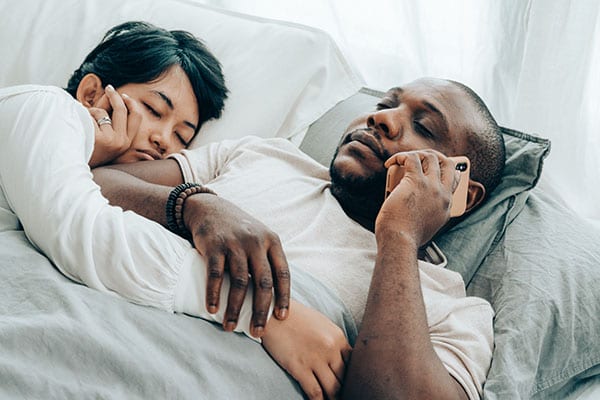
Better Sleep: Melatonin is the hormone of your sleeping state. Serotonin is the hormone of your waking state.
Some people, when they start to feel tired at night, will start to feel like their feet or their hands are getting numb. That's because vitamin D is pinging your brainstem and relaxing your muscles to the point where they are almost paralyzed. If your feet are feeling numb, they are being paralyzed by this vitamin D3. It turns out that 100 IU is the magic number this researcher discovered.
That's why we put that amount into the Good Night Formula. It also turns out that numerous B vitamins are necessary for specific amounts to help keep you asleep at night. We made sure we put those in the Good Night Formula as well.
It sounds funny because most people associate B vitamins with energy. When we were making this Good Night Formula with the researchers who had done it, it shows that it helps with the absorption and utilization of the natural extracts and herbs that helped with the falling asleep part like the melatonin, tryptophan, GABA, passionflower and all the different natural extracts and herbs that are in it. It helps with absorption and utilization. It's a pretty good thing.
The other things that people need to do are to understand how to calm your mind at night. In this day and age, a lot of people our minds are racing. How do you calm your racing mind and narrow your beta waves? It's important to know that when your mind is racing, a part of your brain called Broca’s area is lit up and very active. That is what's leading to the excessive beta waves.
Do we know why they call it Broca's area? Yes. Broca was a very famous neuroscience researcher way back in the day. He was the one that discovered the speech center. Later, subsequent scientists named it Broca. It's not the news guy, Tom Brokaw. It's the other Broca.
There's a book that was written by Carl Sagan, a famous author and astronomer. He wrote a book called Broca's Brain. It was a whole long book about neuroscience written back in the ‘80s or early ‘90s. The other thing is this. For people to be able to relax their minds so they can fall asleep, there are a few different techniques.
One is called the Ultimate Mind Calming Exercise, which people can learn to do. The other is a technique called Lymphatic Drainage or manual lymphatic drainage which helps you to learn how to speed up the flow of your lymph system. It is good for detoxification, which is happening at nighttime.
To do lymph drainage just before bed is a good thing. There are more free videos on that site like the Emotional Freedom Technique and all three of those things help to make you very tired if you use them right.
We have talked a lot about them in many previous episodes. The one that comes to mind is dealing with anxiety during trying times. That's a very good one. If you go to Boomers Forever Young, there are a playlist of helpful videos. It will have them in there. You can use it. I don't ever think we talked about the trick to get that area to calm down.
What is very helpful is to practice relaxing your tongue because Broca's area is connected neuronally and electromagnetically to your tongue. When you are thinking in your brain, you have activity happening in your tongue because your tongue is part of your speech. When you relax your tongue, and people say, "How do I do that?"
Imagine that you are clenching your fist and your fist is very tight, then you are going to relax. You can do the same thing with your tongue, tight, relax. It's very hard to stay awake when your tongue is relaxed, like trying to keep your eyes open when you sneeze.
You get a wave of tiredness as soon as you relax your tongue. It’s a very good technique for falling asleep and falling back asleep. If you have to get up in the middle of the night to use the bathroom or you wake up and you start thinking about things, turn your computer on, turn the TV on, try relaxing your tongue first. You can go back to sleep quickly so that you stay in this hour's nap cycles. You want to try to sleep about 7.5 hours.
I have done the Broca thing with the tongue when I can't fall asleep. It works. I'm glad we went back to that because that's a video we don't have. We haven't made an explanation why it works. Maybe we won't show a video of someone's tongue but we can at least show it to you.
It's very effective and can be a technique that can save your life if you are having a lot of trouble sleeping. There are also numerous different devices people can get for helping with sleep. We know that from talking with Ann Harrison, there's a device that is called PEMF, Pulsed Electromagnetic Fields.
On the PEMF device that I have, there's a sleep cycle. You are lying on a mat that's underneath your mattress pad and you hit the sleep cycle. You set it for 7.5 hours, which is what I do. The machine comes on and it puts out pulsed electromagnetic fields that put you to sleep, put you into REM sleep a little bit later, and then shuts off during the middle of the night. It then goes into waking mode a couple of hours before it's time to wake up. It slowly wakes you up. It’s a very effective device for helping sleep. If people are having really serious problems with sleep, that's a great thing to get.
Another reason why it works so well is, not only does it help with sleep but as you are sleeping, it helps with circulation of the body, repair process and everything so you can wake up and feel a lot more refreshed than if you didn't have that.
What I do is when I wake up, the machine is off, I turn it back on. Put it on the circulation cycle. I lie on it for eight minutes in the morning to bump up my circulation the first thing in the day. Another thing that we forgot to mention is exercise. A lot of times, if people are having sedentary lifestyles, it makes it hard to sleep. If you exercise, just naturally, you are going to be able to sleep better.
A couple of other things is another device called the Fisher Wallace Stimulator, which is like a TENS machine. It's a little black box with pads that you put on to your head, wrap a headband around, turn the power on. When you start feeling a tiny tingling on your skin, you turn it back so it stops. That's the treatment threshold. It’s very good for helping people fall asleep. It's also FDA-approved for treating depression, anxiety and for headaches as well.
We talked a lot about it on our show about depression, Positive Mind, Positive Health. The Inner Balance as you mentioned, is also a great device for helping with sleep. It helps calm anxiety. We have done a whole episode on the Inner Balance device. The last thing I wanted to say about this is there's another device called Vivos. It's for sleep apnea. A lot of times when people have trouble sleeping, it's because of sleep apnea. They are waking themselves up in the night because they stop breathing.
Don't many people not even realize that's happening for a while? They don't realize they have it. Sleep apnea can lead to heart attacks and strokes. Some very famous people have died from sleep apnea. Normally, people think, "We need a CPAP, this device over our face, the headband, the pump and the whole thing." It's a pain in the butt. Vivos is different. It was created by scientists that realized that over time, humans have a narrower palate in the top of their mouth.
They are pretty sure the reason is, when children 200, 300 years ago were growing up, they chewed their food quite a bit because they didn't have liquefied baby food. Children learn to chew at an earlier age and chewed a lot. They also breastfed for much longer.
Their facial muscles and their jaws were much stronger, their palates were much wider and so their throat was more open. In modern days, it's not the case. Your palate is narrowed down and you have a much smaller opening in your throat. That's why so many people have sleep apnea. Vivos device is like braces for your palate. It's a little device that goes up underneath your palate and it very gently over time, spreads your palette apart. As it spreads, your body makes its own adult stem cells.
They migrate to that place. You build new bone from your adult stem cells. Your palate widens out, takes anywhere from 12 months to 18 months that you wear this device. You can cure your sleep apnea this way. You don't need a CPAP. You don't have to worry about it anymore. It's done by a dentist.
I guess you wouldn't have even thought about that. I remember we spoke a little bit about Vivos on another show, where we were talking about Habits To Help Seize The Day, about sleeping better, waking up more refreshed and how that happens. You wouldn't even think that something over those 200 years like that would change physically how the mouth works, the airway and everything. That's pretty good research figuring that out. I would never think of that.
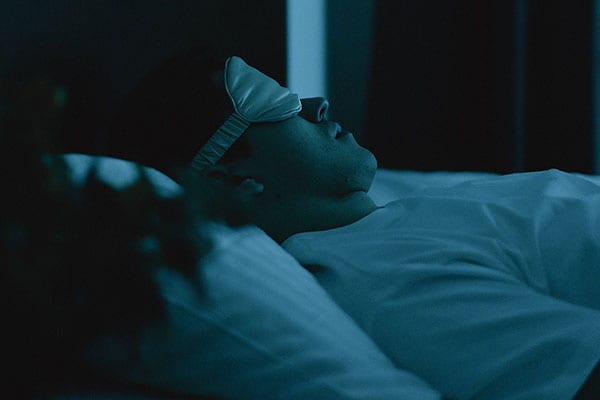
Better Sleep: When people start to feel tired at night, they'll feel a numbness in their feet or hands. That's because vitamin D is relaxing your muscles to the point where they're almost paralyzed.
That's about it, Rollie. That's the basic information that people need to know about sleep. They can always give us a call. If you want any help with Emotional Freedom Technique tapping, if you want some good night formula and you’ve got questions about it, you can call in ask us about that.
You can call us at 1-800-861-4609. Also, check out some information on LiveForeverYoungRadio.com. We've also got The Boomers Forever Young, about some of these different products, what's in them and how they work. Don't hesitate to ask, call or even go and search online because that's what it's there for. The more information you have, the healthier you are. That's why we are bringing it to you.
Thank you, Rollie, for being with us again here.
Thank you, everyone, for reading.
We will see you in the next episode.
Important links:
- Diabetes, A Preventable Epidemic – previous episode
- TrueDark
- Good Night Formula
- Broca's Brain
- Ultimate Mind Calming Exercise – YouTube video
- Lymphatic Drainage – YouTube video
- Emotional Freedom Technique – YouTube video
- Boomers Forever Young - YouTube channel
- Ann Harrison – Previous episode
- Fisher Wallace Stimulator
- Positive Mind, Positive Health – Previous episode
- Inner Balance – Previous episode
- Vivos
- Habits To Help Seize The Day – Previous episode




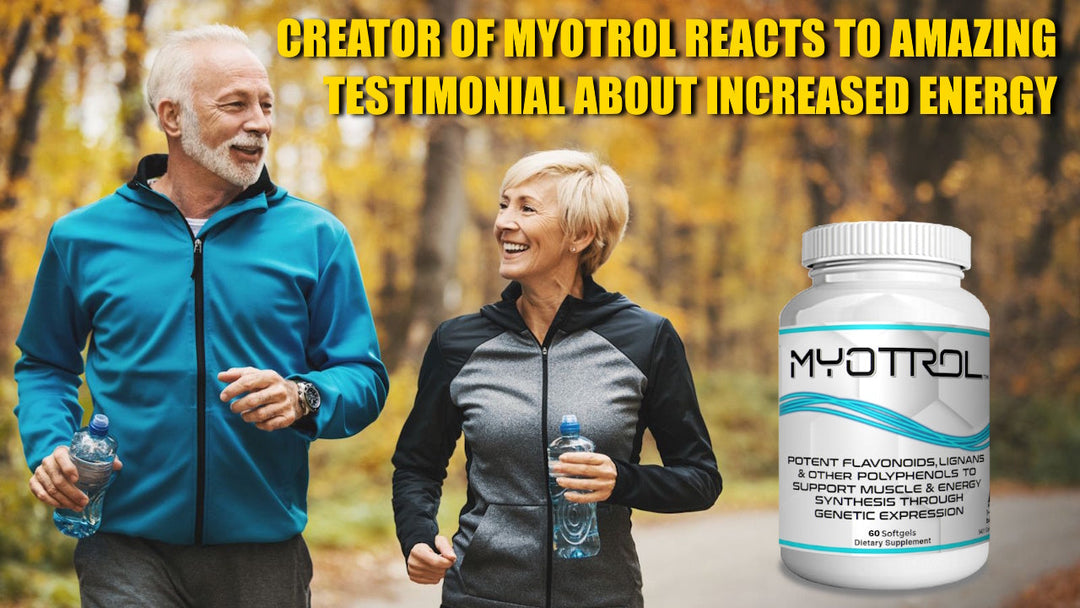
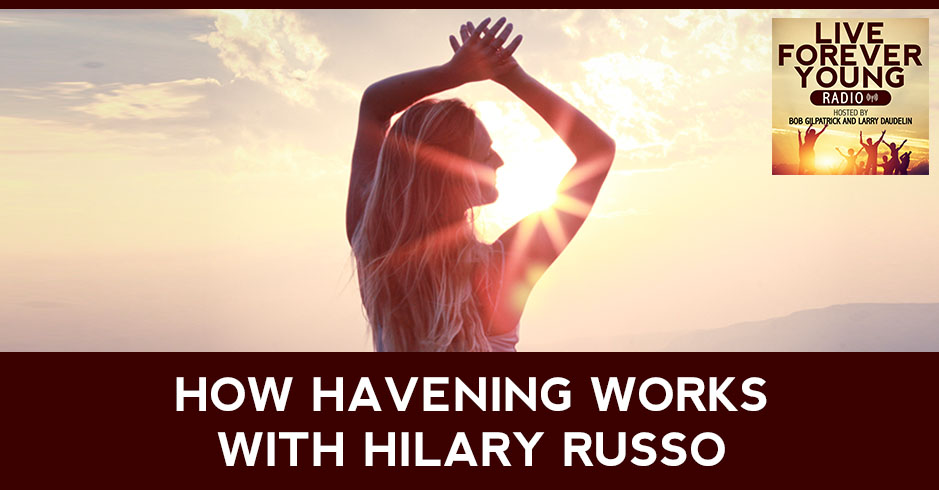
Leave a comment